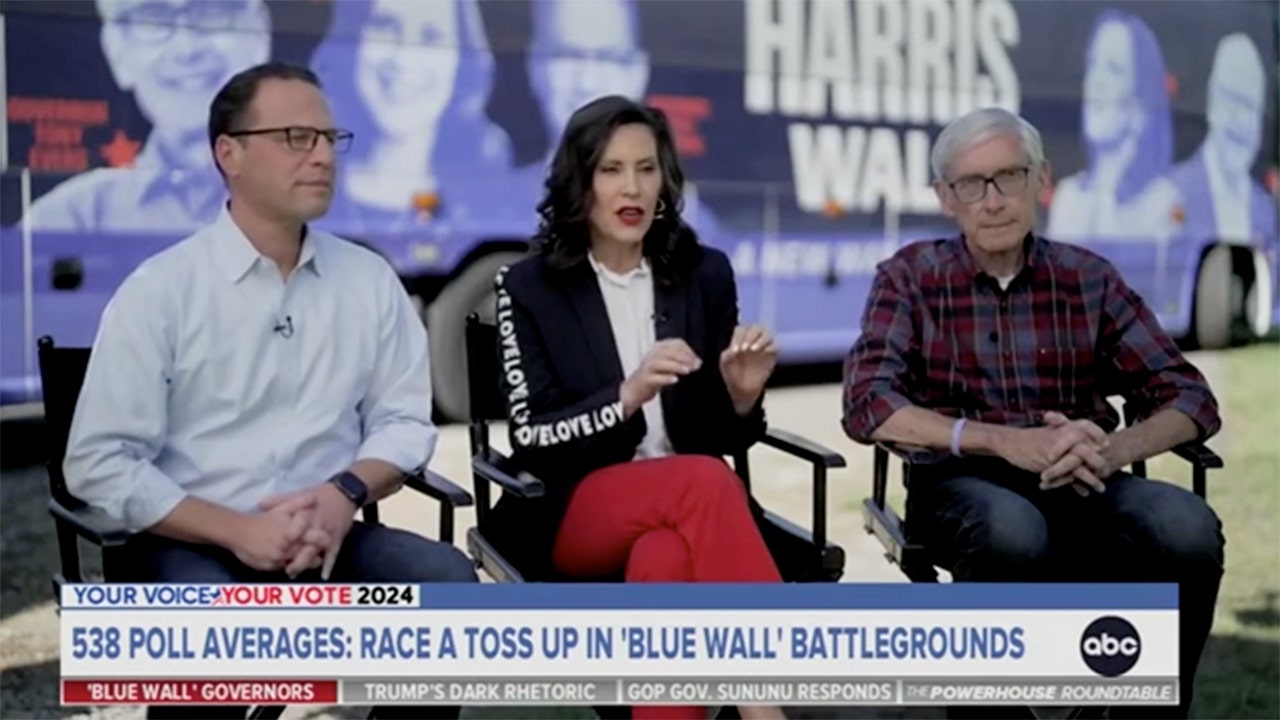The Shifting Political Landscape: Insights from Democratic Governors on the Blue Wall States
In a recent interview with ABC News, Martha Raddatz engaged three prominent Democratic governors—Gretchen Whitmer of Michigan, Josh Shapiro of Pennsylvania, and Tony Evers of Wisconsin—in a discussion about the evolving political dynamics in states that were once considered strongholds for the Democratic Party. These states, often referred to as the "Blue Wall," have become battlegrounds in the lead-up to the 2024 presidential election, raising questions about the Democratic Party’s strategy and voter engagement.
The Blue Wall: A Historical Perspective
Historically, Michigan, Pennsylvania, and Wisconsin have been pivotal in presidential elections. In 2016, Donald Trump broke through the Democratic stronghold, winning these states and marking a significant shift in the political landscape. However, in 2020, President Joe Biden managed to reclaim them, underscoring the volatility and competitiveness of these regions. Raddatz pointed out the stark contrast in polling data, noting that the enthusiasm for Democrats seems to have waned since their previous victories.
The Challenge of Voter Engagement
Raddatz pressed the governors on the apparent decline in support for Democrats in these critical states. She highlighted the importance of understanding who the Democrats have lost over the years and why the polls are not reflecting the enthusiasm they claim to see on the ground. Whitmer responded by emphasizing the importance of inclusivity in their campaign strategy, stating, "We understand that there are Republicans out there who are lamenting that Donald Trump is their nominee. They’re not sure about our agenda. We’re making a seat at the table for them."
This approach reflects a broader strategy aimed at appealing to independent and disenchanted Republican voters, acknowledging that the political landscape is not as straightforward as it once seemed. The governors are keenly aware that winning back these voters is essential for securing victories in their states.
Polling Realities and Ground Game Strategies
Despite the optimism expressed by the governors, Raddatz pointed out the razor-thin margins in polling averages, suggesting that Trump could still have a viable path to victory in these states. Whitmer, however, remained undeterred, asserting, "We’re determined to make sure we do everything in our power to win this thing." She highlighted the Democrats’ advantages, including a robust ground game and a focus on issues that resonate with voters, such as the economy and individual rights.
Evers echoed this sentiment, noting that many voters may not be actively following the election or the polls. He argued that there is a significant portion of the electorate that is simply focused on their daily lives, which can lead to a disconnect between polling data and actual voter sentiment. "There are people that frankly don’t follow this on a daily basis," he explained, emphasizing the need for the campaign to reach out to these individuals.
The Role of Enthusiasm in Elections
The discussion also touched on the concept of voter enthusiasm, with Raddatz questioning whether the Democrats are effectively engaging with undecided voters or those who may feel unenthused about the election. Whitmer and Evers both expressed confidence in their ability to galvanize support, with Whitmer stating, "We’ve got a better candidate. We’ve got receipts on issues that matter to the American people." This confidence is crucial as the governors prepare for what they anticipate will be a closely contested election.
Conclusion: A Complex Political Landscape
As the 2024 election approaches, the dynamics in the Blue Wall states remain complex and fluid. The insights from Whitmer, Shapiro, and Evers highlight the challenges and opportunities facing the Democratic Party as they seek to maintain their foothold in these critical battlegrounds. With a focus on inclusivity, voter engagement, and addressing the concerns of a diverse electorate, the governors are working to navigate the shifting political landscape in hopes of securing victories in their states.
